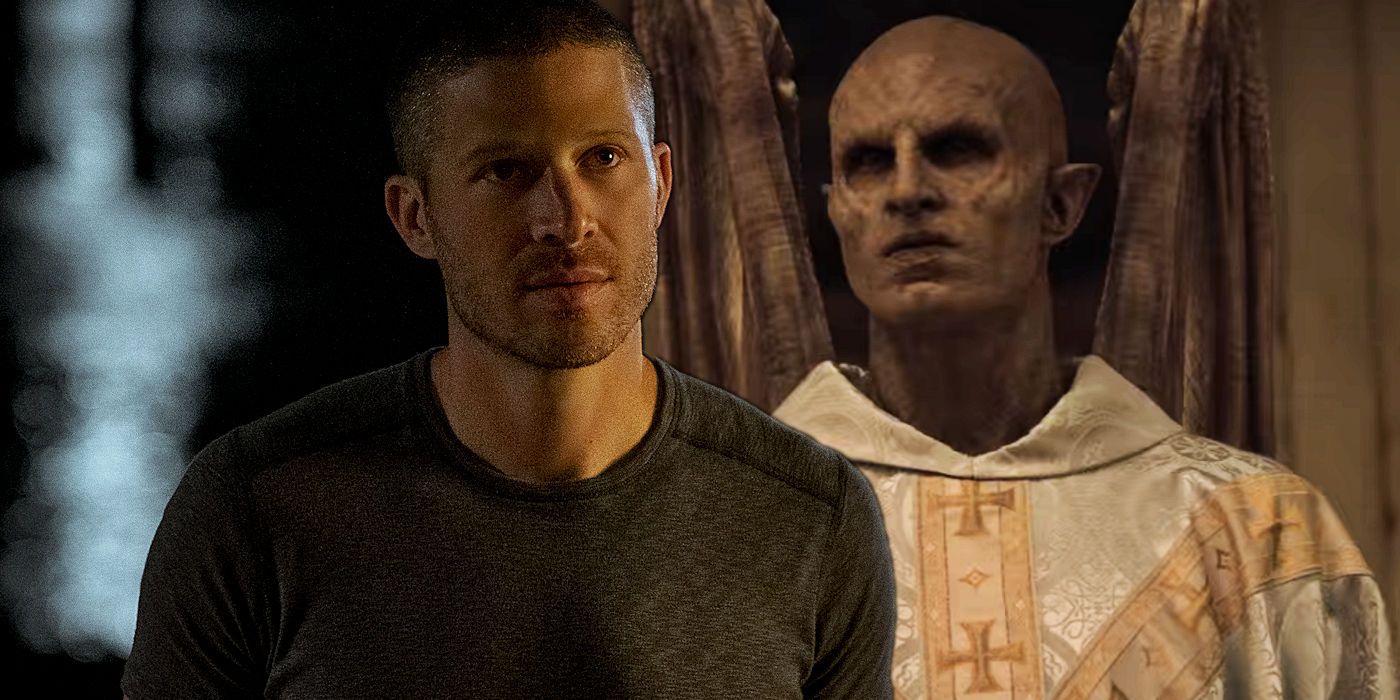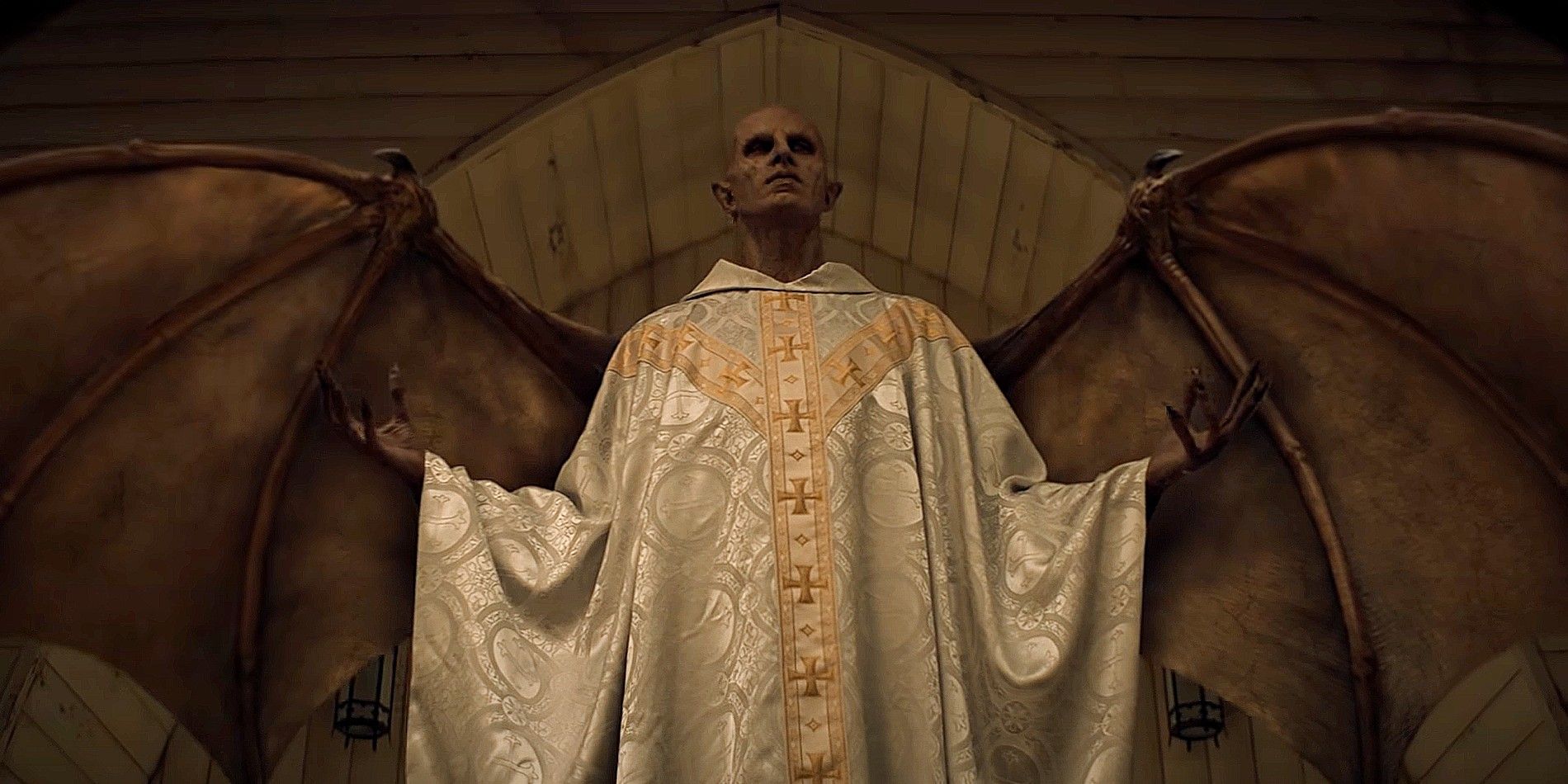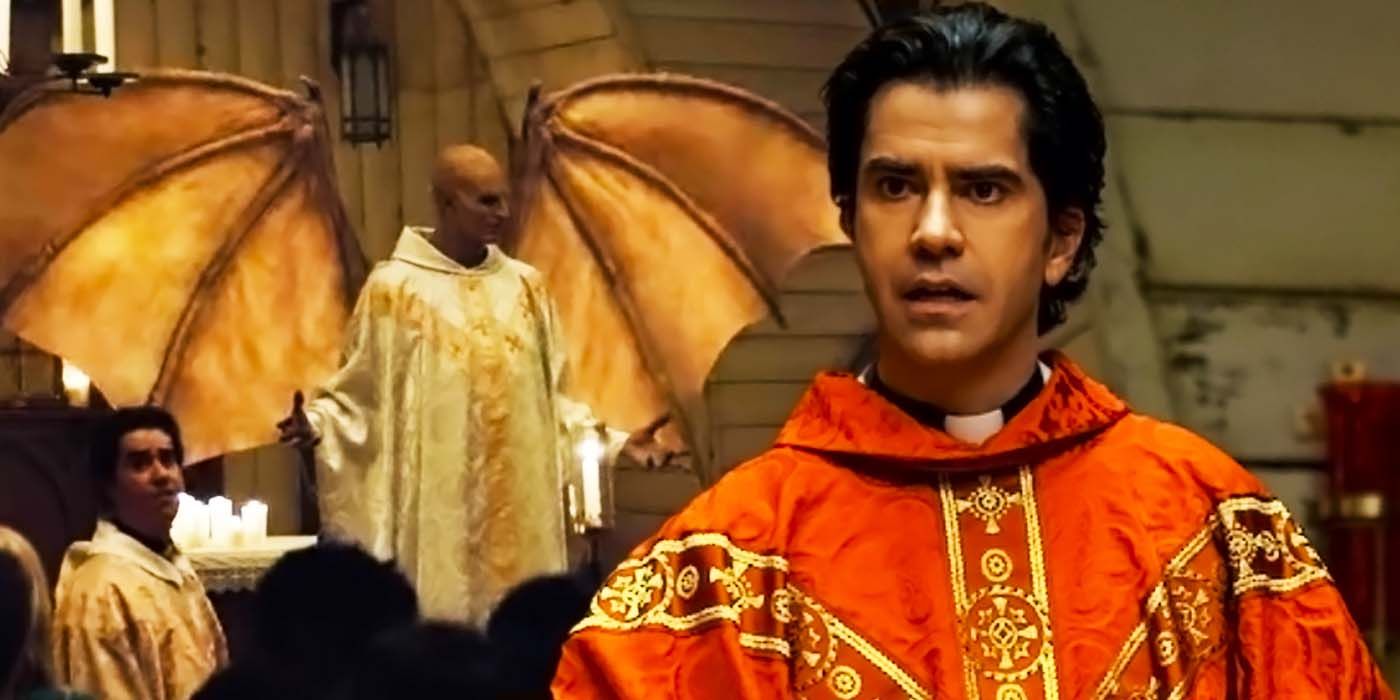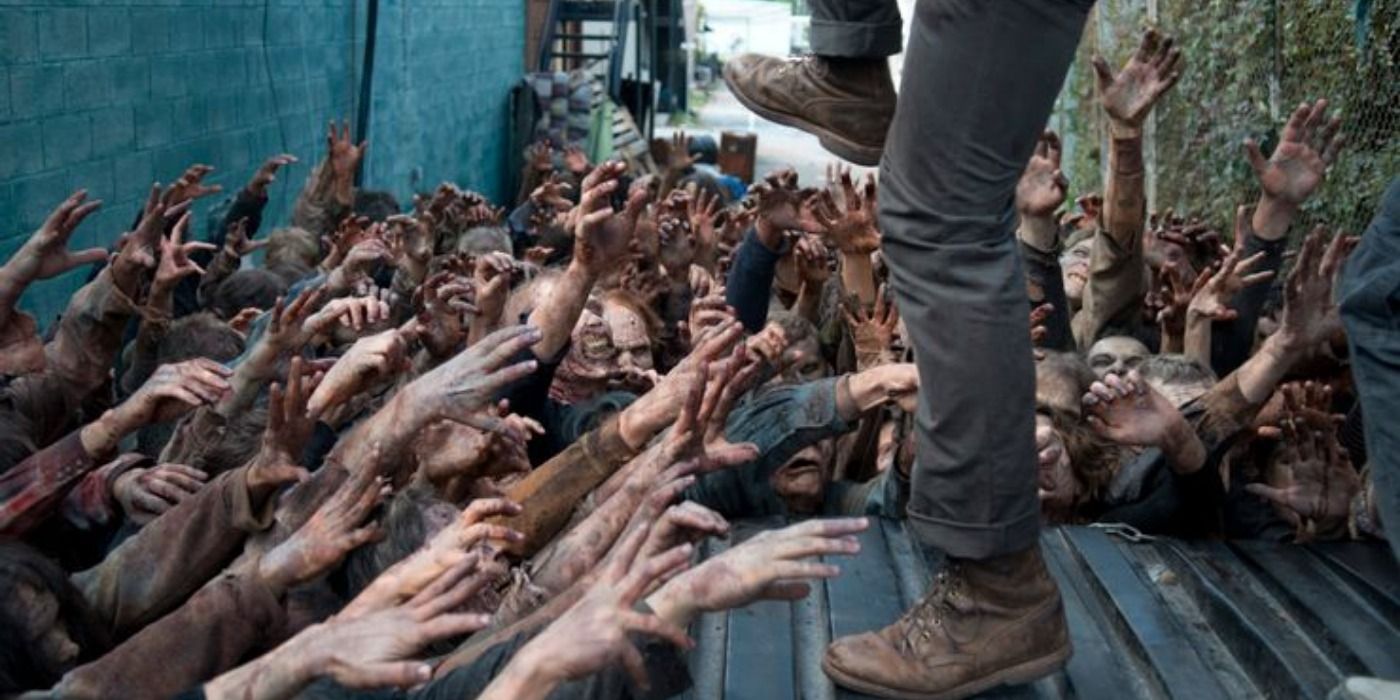Summary
- Midnight Mass avoids using the word "vampire" to explore deeper themes of faith, guilt, and fanaticism, distinguishing itself from traditional vampire stories.
- By refraining from using the term "vampire," the show avoids being confined to established vampire mythology and tropes, allowing for a unique and thought-provoking narrative.
- Similar to how The Walking Dead avoids using the term "zombie," Midnight Mass creates its own terms for its creatures, allowing for a fresh and unpredictable story that focuses on human conflicts and convictions.
The monster in Midnight Mass is very much a vampire, but the show never once uses the word “vampire.” Mike Flanagan's decision to omit the explanation behind the creature has to do with the overall themes of the series, and how the show doesn't want to be pigeonholed as a "vampire show." Following the acclaim of his Netflix haunted house horror shows The Haunting of Hill House and its standalone successor Bly Manor, Mike Flanagan returned in a different nightmare-inducing direction. As an extremely personal project that reflects his own horrors, the Doctor Sleep director used Midnight Mass’s vampire monster premise as a vehicle to explore highly accessible human fears involving faith, guilt, sobriety, forgiveness, loss, and death.
Midnight Mass follows a small isolated island town called Crockett Island, where the dying community is yearning for belief as a charismatic young priest arrives. The characters’ faith is tested as strange miracles of God appear, which are actually revealed to be the product of Midnight Mass’s vampire monster, which the characters label an angel. As Midnight Mass’s town drinks the blood of the vampire in communion to restore their ailments and eventually die to resurrect as blood-sucking vampires themselves, the dangers of religious fanaticism are exhibited in a clear comparison of Catholic and vampiric lore. There are several reasons why Midnight Mass "vampires" never go by that name, which caused some confusion among viewers about whether the creature is an angel, a vampire, or something else entirely.
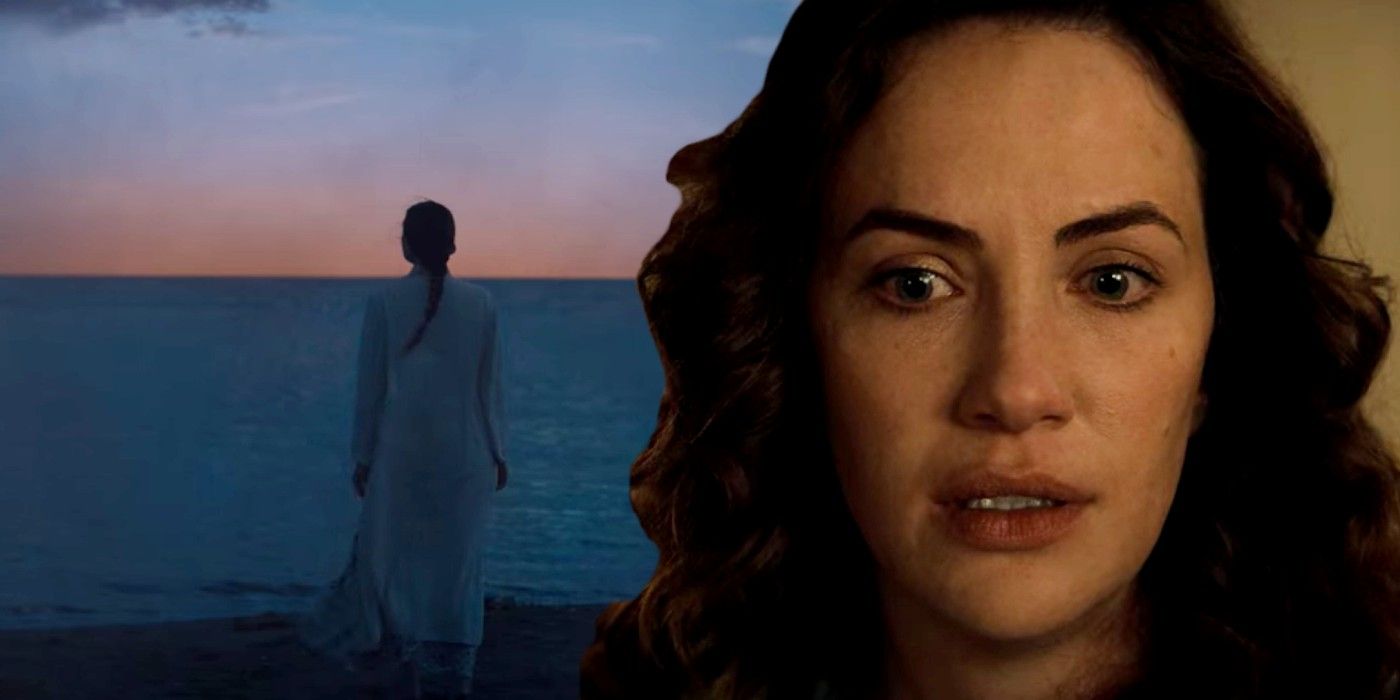
Midnight Mass Ending & Real Meaning Explained: Why It's A Happy End
Mike Flanagan's latest horror show, Midnight Mass, is a complex, emotional portrait of grief, addiction, and the triumph of will with a clever twist.Why Mike Flanagan Avoided The Word Vampire In Midnight Mass
While the creature threatening Midnight Mass’s town is clearly a vampire, the word is never uttered throughout the entire series. This is mostly due to the Midnight Mass characters’ religious interpretation of the events as a gift from God, so its only given name within the series is an “angel.” In an interview for Netflix Geeked (via Twitter), Flanagan gives a much more specific and important reason why the word “vampire” is never said. At the end of the day, Flanagan says, Midnight Mass is not a traditional vampire story because the creature means so much more as a manifestation of “fanaticism and fundamentalism.” The creature certainly plays an important role in Midnight Mass, but the series isn’t a “vampire story” at its core.
The horror director continues his argument by pointing out that if they included the word “vampire,” the entire show would be confined to expectations based on centuries' worth of vampire lore. From Bram Stoker’s Dracula to Stephen King’s Salem’s Lot, vampire fiction has created hundreds of years worth of tropes and expectations that Midnight Mass would inevitably be compared and relegated to in terms of established mythology.
Instead, Midnight Mass uses clear visuals and certain recognizable tropes to explicitly establish the creature as a vampire — though a vampire in Midnight Mass’s own terms. Additionally, making it a “vampire story” would inevitably pin the creature as the monster, whereas Midnight Mass’s core conflict at play is among the human beings and their convictions.
Flanagan then discusses the connections between vampire lore and certain iconography of the Bible, specifically the “rivers of blood” and “angels coming to the door to slaughter children,” both of which are implemented as Midnight Mass connects religion to the vampiric creature. The vampire connection supplements much of the horror tropes of the series, bringing what he long considers to be the most terrifying aspects of the Bible into a more accessible, familiar horror monster. Without actually saying the “V-word” (via Kate Siegel on Twitter) and immediately bringing with it centuries of mythological baggage, Midnight Mass was better able to adapt the creature to its own poignant themes instead of conforming to the genre expectations.
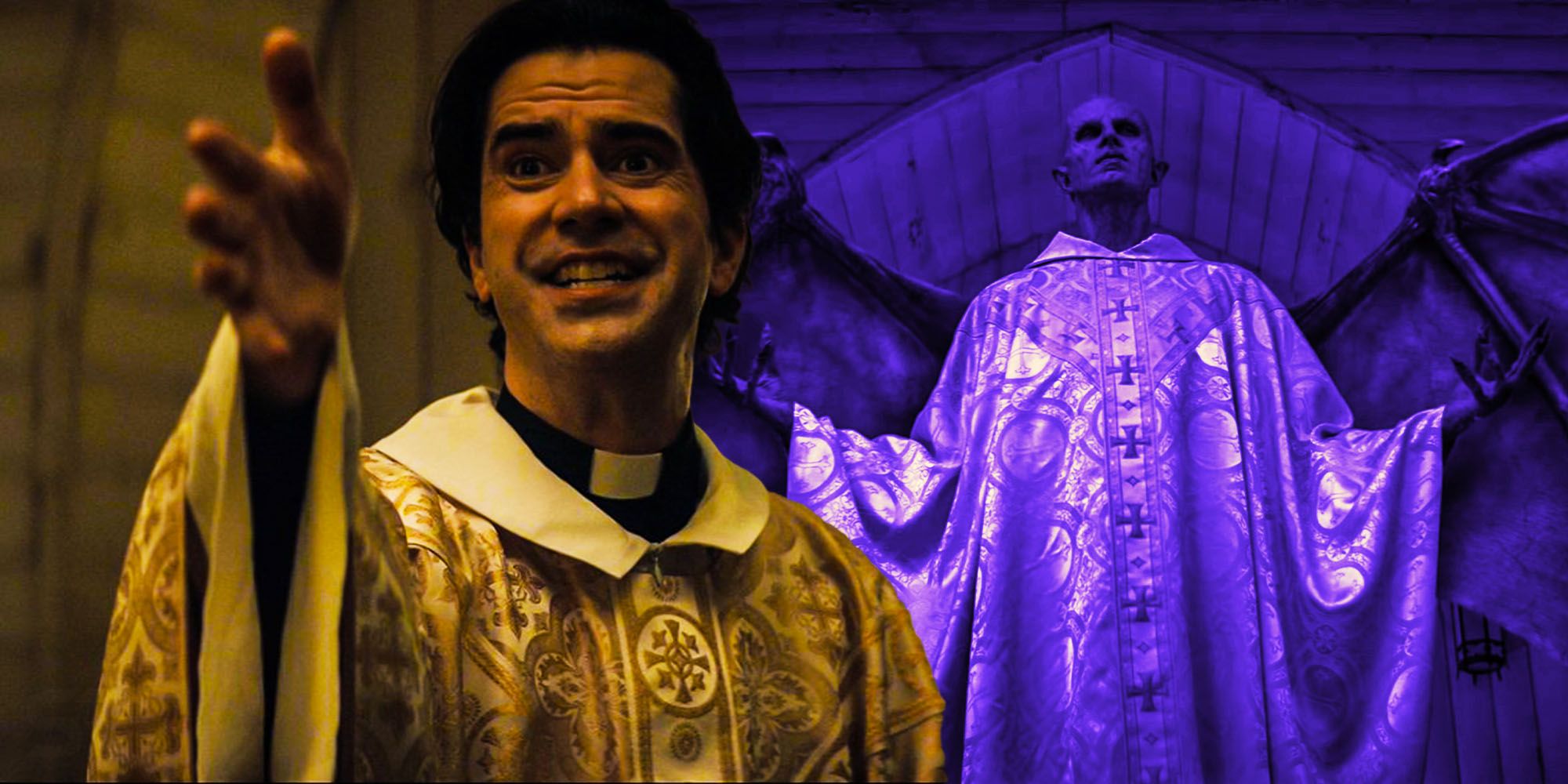
Midnight Mass Detail Shows Why The Vampire's Plan Was Brilliant
Netflix’s Midnight Mass exhibits a particularly subtle detail when it comes to the time setting of the show and Father Paul planned it to perfection.Midnight Mass Made The Right Move By Dropping The V-Word
Midnight Mass did the right thing by never mentioning the word "vampire" — that way, the show could display these classic creatures on its own terms and spin a unique story around them. The Vampire genre has been going through a reinvention period for quite some time; after all, Bela Lugosi's version of Dracula is a far cry from Edward Cullen in Twilight.
Despite the tropes of the genre being constantly redefined, there are some specific ground rules that should be followed, and Midnight Mass was able to circumvent that. The proof is in the pudding when it comes to the payoff of this choice, as the series boasts an 86% on Rotten Tomatoes, and was widely critically acclaimed.
Similar to the choice made by 28 Days Later, which never utters the word "zombies," Midnight Mass was able to create an entirely new type of vampire story, without ever saying "vampire." Being part of a genre doesn't mean obeying its rules – in fact, that's where some of the most exciting and thought-provoking projects come from. Midnight Mass was born from the same ethos and is better for it.
Midnight Mass Not Saying Vampire Is Similar To The Walking Dead Not Saying Zombie
The Walking Dead took a similar approach to zombies as Midnight Mass does to vampires. In The Walking Dead, what the audience calls zombies are referenced as Walkers, Creepers, Lurkers, etc., but never called “zombie.” Unlike Midnight Mass’ vampires, there are a variety of names for them, not just one. That’s because different groups name the zombies, and the show takes place over a larger area. If Midnight Mass wasn’t so confined to its one small town, that might be true for the series as well.
The Walking Dead stays away from the word “zombies” for a different reason than Midnight Mass though. While Midnight Mass didn’t want to confine its “angels” to one stereotype, The Walking Dead takes place in a world where zombies don’t exist in pop culture, which is very different from the real world. Like Midnight Mass, the idea works in the show’s favor. After all, much of the real horror in The Walking Dead comes in how the surviving humans treat one another, not in how they are attacked by Walkers. Not saying "zombies," allows the show to build up its monsters - both human and dead.
That means that when the show begins and characters are introduced to Walkers for the first time, there are no preconceived ideas about them, no pop culture myths about how to kill them, or what to expect from them. Instead, the characters have to learn their characteristics, their weakness, and just how to keep themselves safe from them, as the series goes on. It makes for a more compelling narrative and better world-building that way. The same is true of Midnight Mass.

